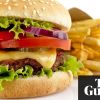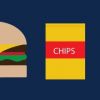-
 +18 +1
+18 +1Obesity epidemic could fuel loneliness, as scientists find a genetic link
The obesity epidemic could be fuelling Britain’s growing problem of loneliness, scientists believe, after discovering a genetic link between the two conditions. Around a quarter of people over 65 in Britain suffer from loneliness, which can raise the risk of many diseases, and can even cause people to die earlier, while nearly two thirds are overweight.
-
 0 +1
0 +1Are A Candidate with regard to Weight-Loss Surgical treatment?
In modern times, weight-loss surgical treatment has emerged being an incredibly efficient tool in assisting patients handle obesity as well as make wholesome lifestyle options.
-
 +37 +1
+37 +1Normalisation of 'plus-size' risks hidden danger of obesity, study finds
New research warns that the normalisation of 'plus-size' body shapes may be leading to an increasing number of people underestimating their weight - undermining efforts to tackle England's ever-growing obesity problem.
-
 +22 +1
+22 +1Study casts doubt on 'healthy obesity'
Fat but otherwise healthy women are still likelier to have a stroke or heart attack, a study says.
-
 +9 +1
+9 +1Theresa May under pressure over childhood obesity as MPs back crackdown on junk food ads
An influential group of MPs is demanding a ban on junk food advertising before 9pm, among a raft of new measures to overturn the UK’s childhood obesity epidemic. Reforms pitched by the Health and Social Care Committee include bans on permitting cartoon characters to promote unhealthy snacks, outlawing sweets at supermarket checkouts and forcing restaurants to list calorie counts on their menus.
-
 +14 +1
+14 +1Veggie-based diets could save 8 million lives by 2050 and cut global warming
A global switch to diets that rely less on meat and more on fruit and vegetables could save up to 8 million lives by 2050, reduce greenhouse gas emissions by two thirds, and lead to healthcare-related savings. It could also avoid climate-related damages of $1.5 trillion (US), Oxford Martin School researchers have found.
-
 +6 +1
+6 +1Adolescent Consumption of Sports Drinks
Sports drinks are aggressively marketed to teenagers to replenish fluids and/or electrolytes. According to the American Academy of Pediatrics, typical adolescent physical activity does not require sports drink rehydration. Given US obesity rates and that sugar-sweetened sports drinks add superfluous calories to the diet, it is important to assess adolescent sports drink consumption and changes over time. Researchers in the 2015 Youth Risk Behavior Survey and 2010 National Youth Physical Activity and Nutrition Survey collected nationally representative samples of US high school students about sports drink consumption.
-
 +21 +1
+21 +1‘Soda Tax’ Impact: Philadelphia Residents 40 Percent Less Likely To Drink Sugary Soda Each Day After New Tax
Philadelphia residents were less likely to drink sugary soda each day after the launch of a beverage tax of $0.015/ounce on sugar and sugar-substitute beverages last year, a new study from Drexel University researchers has revealed. The new tax on nonalcoholic sweetened beverages was levied on distributors and came into effect on January 1, 2017. It was considered one of the steepest in the U.S. and was estimated to raise the price of diet soda, energy drinks, and sugary fruit juice beverages by 20 percent.
-
 +17 +1
+17 +1Britain's sugar tax on soft drinks comes into effect
Britain’s sugar tax on soft drinks came into effect on Friday, a move that will lead to some higher prices as the country seeks to battle childhood obesity. The tax, announced in March 2016, has already cut sugar content in drinks by 45 million kg per year, Britain’s Treasury said, as over 50 percent of manufacturers have reformulated their products to be below the levy’s sugar threshold.
-
 +22 +1
+22 +1The Ecology Of Disadvantage: Obesity Is Not Randomly Distributed Across The U.S.
According to data published by the National Institute of Diabetes and Digestive and Kidney Diseases, more than two in three adults in the United States are considered to be overweight or obese. However, this problem is not randomly distributed across the country. In fact, according to a new University of Arkansas study, obesity is particularly prevalent in certain areas; areas with socio-economic factors that create an “ecology of disadvantage,” as the researchers put it. This includes various social and demographic components.
-
 +10 +1
+10 +1Tony Bussey is half the man he was after losing 326 pounds
Tony Bussey, 43, took up two seats on a plane fleeing Fort McMurray in 2016 — and the fact he prevented another person from getting a place on the plane because of his weight changed his life.
-
 +26 +1
+26 +1Eating out increases levels of phthalates in the body, study finds
Eating at restaurants and fast food chains may increase exposure to potentially harmful hormone-disrupting chemicals used to increase the flexibility and durability of plastic, a study has found. Researchers investigating levels of phthalates in the human body, which have been linked to asthma, breast cancer, type 2 diabetes and fertility issues in the past few years, were found to be nearly 35% higher in participants who had eaten out the previous day compared with those who stayed at home.
-
 +19 +1
+19 +1Canada wants clearer warnings on junk food. The US is using NAFTA to stop them.
Pretty much every country in the world now has an obesity crisis. But no one’s really figured out what to do about it. One of the most avant-garde obesity policy experiments is happening in Chile, where health officials are trying to revolutionize nutrition labeling. Instead of cramming percentages and numbers onto the back of food packages, the Chilean government now requires symbol-based warning labels on the front of food products that contain high levels of salt, sugar, calories, and saturated fat.
-
 +23 +1
+23 +1American Adults Just Keep Getting Fatter
American adults continue to put on the pounds. New data shows that nearly 40 percent of them were obese in 2015 and 2016, a sharp increase from a decade earlier, federal health officials reported Friday. The prevalence of severe obesity in American adults is also rising, heightening their risks of developing heart disease, diabetes and various cancers. According to the latest data, published Friday in JAMA, 7.7 percent of American adults were severely obese in the same period.
-
 +30 +1
+30 +1Parents’ considerable underestimation of sugar and their child’s risk of overweight
High sugar intake is associated with an increased risk of overweight. For parents, as their children’s nutritional gatekeepers, knowledge about sugar is a prerequisite for regulating sugar consumption. Yet little is known about parental ability to estimate the sugar content of foods and beverages and how this ability is associated with children’s body mass index (BMI).
-
 +20 +1
+20 +1Taste Buds Dull As People Gain Weight. Now Scientists Think They Know Why
Doctors have known that as people pack on the pounds, their sense of taste diminishes. New research in mice helps explain what's going on: Inflammation brought on by obesity may be killing taste buds.
-
 +42 +1
+42 +1Stress eating can start in early childhood, may lead to extra weight later
ANN ARBOR—The link between emotions and eating has been well established but new research from the University of Michigan shows that children as young as 4 who experience stress eat more in the abse
-
 +17 +1
+17 +1'Britain needs to go on a diet', health official warns
Britain “needs to go on a diet”, a top health official has warned, adding that some children currently eat the equivalent of an extra meal a day in calories. Public Health England (PHE) said that obesity is becoming "the norm" as it launched a new campaign targeting pizzas, processed meat, ready meals and takeaways. The health body has called on the food industry to cut portion sizes and promote healthier foods in a bid to slash calorie consumption by 20 per cent before 2024.
-
 +10 +1
+10 +1Millennials 'set to be fattest generation'
UK millennials are on track to be the most overweight generation since records began, health experts say. Based on population trends, more than seven in every 10 people born between the early 1980s and mid-90s will be too fat by the time they reach middle age. In comparison, about half of the "baby boomer" generation, born just after World War Two, were fat at that age. Being fat as an adult is linked to 13 different types of cancer, says Cancer Research UK, who did the analysis.
-
 +3 +1
+3 +12008 Great Recession led to increase in obesity, diabetes and mental health issues, says study
The 2008 Great Recession resulted in changes to individuals’ health behaviour, with a significant increase in the likelihood of obesity, diabetes and mental health problems, according to a new study from City, University of London and King’s College London. In particular, the researchers discovered that the probability of being obese and severely obese increased by 4.1 and 2.4 percentage points respectively. Similarly, the probability of having diabetes was 1.5 percentage points higher after 2008, with the prevalence of mental health problems increasing by 4 percentage points.
Submit a link
Start a discussion




















